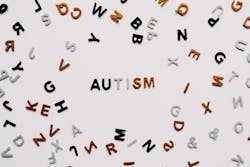The Autism Intervention Research Network on Physical Health (AIR-P), a multi-site collaboration housed within UCLA Health’s Department of Medicine, has released a new report that uses national data to highlight the intersection of autism, poverty, and race/ethnicity and their compounding impact on health and healthcare.
While it is well-known that autistic children, children from lower-income households and children who are Black, Indigenous, and People of Color (BIPOC) disproportionally experience poor health and healthcare access, very little is known about how these social identities “intersect” to impact health and healthcare outcomes. There is a need to better understand the intersectionality of these multiple characteristics to figure out how to target and tailor interventions and improve health outcomes. The new report finds that autism, poverty, and non-white race/ethnicity appear to increase rates of health concerns and care challenges both individually and in combination.
“Discrimination based on race and socioeconomic status is increasingly recognized as an important risk factor to people’s health,” said Alice Kuo, MD, PhD, Chief of Medicine-Pediatrics at UCLA and Project Investigator for the federally funded AIR-P. “With this report, we can begin to see the devastating combination of autism, poverty and race, an important step in translating the research we do into policy and practice to improve outcomes for people with autism.”
“Findings like these are important because policymakers, decision-makers, and advocates use this information to better understand the needs of the autism population and guide the development of targeted programs and services” said Kristy Anderson, PhD, a researcher at the Autism Institute at Drexel University and first author of the report.

